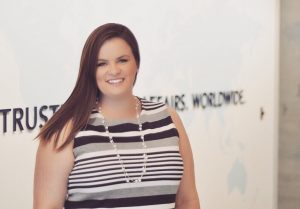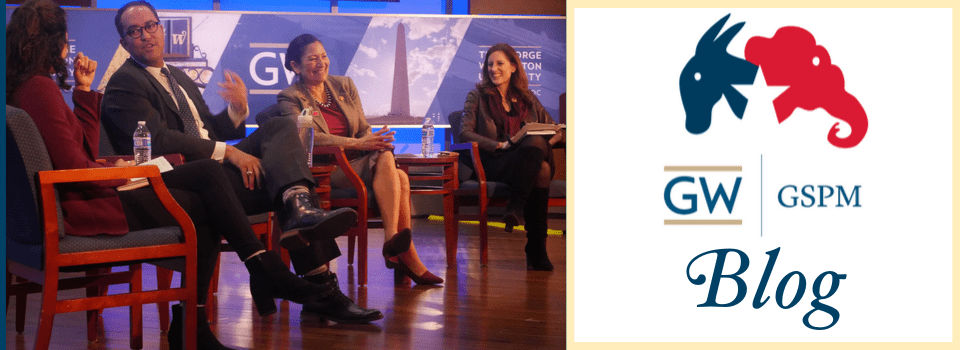
It’s not what you know it’s who you know. Your network is your net worth. These sayings are clichés for a reason, but like many clichés, they contain a grain of truth. How do you stand out in a crowded job market? How do you learn about job openings before anyone else?
The most effective way is to leverage your personal and professional networks. Your current and former coworkers, your friends, and the alumni of the schools you attended are the key to your job search. This is even more important when looking for career opportunities in competitive fields such as politics and advocacy.
We asked several of our alumni how they got into the world of politics, and why they look to GSPM for future hires. A key for Bret Caldwell, GSPM ’95 and Special Assistant to the President and Director of Communications for the International Brotherhood of Teamsters, was a shared understanding. “What I’m looking for are people who can enter an organization and adapt quickly; have the skills to bring about organizational change if necessary; and the ability to become leaders within the organization,” said Caldwell.
While filling a recent vacancy, Caldwell interviewed another alum, Ash Latimer, GSPM ’15. “It was clear she was going to be a great add to the team and since we’ve both been through the program it’s very apparent we’re on the same wavelength on our approach to tackling complex issues,” he noted.
Latimer first found out about the opportunity from a mutual friend. “I got a text saying are you interested in working for the Teamster’s,” she said. “Within an hour he had connected me with Bret. We set up a meeting two days later, I met with assistant directors the next week, and I got the offer later that week.”
For Bill Meierling, GSPM ’08 and Chief Operating Officer and Senior Vice President, Public Affairs at the American Legislative Exchange Council (ALEC), the school’s unique curriculum is an asset for any politico on a job hunt. “If you actually want to win the campaign, you go to GSPM,” he says. “Thinking about the types of classes offered you can really get a specialized education in various disciplines in politics. It’s the single best place to gain knowledge from practitioners.”
Meierling added that the longevity of the school is a key asset for anyone looking to work in Washington. “There are 5,000 alumni in the school, and about 2,000 in the DC area. There aren’t 2,000 corporate offices in DC so think about how many organizations where there is a GSPMer. Virtually every one.”
Taylor McCarty, a current student and Communications Strategist at DDC, echoed that sentiment. “I stay in touch with the students and several professors and it’s benefited me personally and professionally,” she said. “It’s a great way to find a mentor and make new friends. You never know who may lend a helping hand down the road.”

